4 Wealth Management Myths Busted
Most of us hold set beliefs around money, some of which have been passed down to us by family members and which we’ve carried with us our entire adult lives.
Many of these beliefs around money are incredibly useful. However, some of them are not accurate and they can hold you back from reaching the next level with your financial ambitions and goals.
The challenge is identifying what is a myth and understanding why. Keep reading as we go through four commonly held ideas around wealth management and explain why they deserve a rethink.
Top 4 Common Wealth Management Myths
Before we start myth-busting, here are the four common wealth management myths we will dispel:
1. Income is the same as wealth
2. I don’t have enough money to start saving or investing
3. Just tell me where to invest my money and I’ll be fine
4. Money is the only thing that matters
1. Income Is the Same as Wealth
You can have a great income, but if you’re spending every penny, you’re not truly building any wealth. It’s what you do with your income and how you make it work for you that determines whether you generate wealth.
We often see individuals with super high salaries who have little to no actual wealth. This is because they are not investing, saving, or generating any passive income from the income they have. Money is simply coming in and going out.
On the other hand, we often see “millionaires next door” who earn an average (or lower) salary but who’ve been able to build wealth through simple, consistent practices over time.
To create wealth, as opposed to income, you need a solid financial plan and to take control of your finances. Whatever your path is, it’s important to note that, unlike income, wealth is not always instant. More often wealth-building requires patience and a long-term plan.
2. I Need a Certain Amount of Money To Start Saving or Investing
Carrying on from the idea of wealth-building, it’s important to dispel the myth that you need a lot of money to get started with saving or investing.
Many people put off investing due to the belief that they don’t have enough money yet and that they’ll invest when they have more money saved. This is especially common with young families who are juggling many responsibilities and expenses.
The reality is that the best time to start investing is now, even if you only have a small amount. As we’ve seen, building wealth is a long-term project and there are many ways you can make even a small amount of money work harder for you. This may even be as simple as moving money from a checking account into a high-interest account or contributing more to your retirement.
You may feel that you need more knowledge to get started. This is a legitimate concern, however with the right advisor and through learned experience many individuals learn a lot as they go along.
It’s hugely empowering to know that anyone can get started on wealth-building regardless of the size of their income or financial responsibilities. The most important thing is to start from where you’re at.
3. I Just Need Someone To Tell Me Where To Invest
Wealth management is a multifaceted process that is personalized, holistic, and strategic. It goes beyond simply investing and extends to protecting your assets throughout your life. To pursue real wealth your plan will need to incorporate not only investments but also life insurance and estate planning. You’ll also need to reduce your tax liability through tax strategies as well as strategic and aligned charitable giving.
Different circumstances can make a strategic wealth management plan even more essential for wealth building. For example, if you own a business, your individual tax situation is likely to be more complex, reaching beyond just personal investments. A holistic approach with consistent monitoring is even more important here.
As you move through your investment and wealth-building journey there will be many investment opportunities, challenges, and questions that you need to address and monitor. However, to truly be on the path to real wealth you need a comprehensive wealth plan with the necessary foundations in place.
4. Money Is the Only Measure of Wealth
While money is a big part of the wealth equation, true wealth goes beyond money and reaches all aspects of your life.
Are you truly wealthy if you can’t take a month off from work or if you don’t have time to spend on your favorite hobbies? Wealth extends far beyond money and can include time freedom and lifestyle freedom.
For many clients, being wealthy means having the flexibility to make decisions in life that improve your quality of life. This will look different for everyone, but it might mean you get to work in a job you enjoy and retire at your desired age while still being able to support your aging parents. It could also mean you can support your kids’ college tuition and pass down the family vacation home to them with confidence.
Whatever your motivators are, real wealth goes beyond the money in the bank and extends to freedom around how you choose to spend your time and how you want your life to look now and in the future.
Takeaways
Many myths exist around money and these are just four that we feel are important to dispel.
No matter where you are in your wealth management journey, it’s always a good practice to reflect on your beliefs about money and assess whether any of these are holding you back.
Another helpful step is to check in with your wealth advisor. Entrust Wealth Partners are always on hand to help you with any doubts you have or to help you explore new opportunities. We offer tailored advice to our clients with your best interests in mind.
For more guidance on how you can build your wealth contact your Entrust Wealth Partners advisor directly or reach out to us at (860) 838-3730.

